Forum - View topicWhat are you watching right now? Why? (please read 1st post)
|
Goto page Previous Next |
| Author | Message | |||
|---|---|---|---|---|
|
Errinundra
Moderator
Posts: 6584 Location: Melbourne, Oz |
|
|||
|
Fullmetal Alchemist: Brotherhood
Reason for watching: The original FMA anime is one of the few shounen action series that I regard highly; FMB has a higher Bayesian rating than FMA; it's the top ranked anime for 2009 and in the all-time top 4 Bayesian rankings; the "Most Improved Character" tournament a little while back had me intrigued to check out how much Scar had changed; and Madman's AnimeLab is currently screening all episodes for nix and my system is able to stream it in high quality (unlike Crunchyroll). The anime: I'm going to approach this differently from my usual style. It's more of a comparo. Really, it's impossible to talk about FMB without comparing it with FMA so... Brotherhood is somewhat inferior to the original series, but not without its own merits. I enjoyed both, but in different ways. Both had long sequences of episodes that tested my endurance, but at different points in the series. 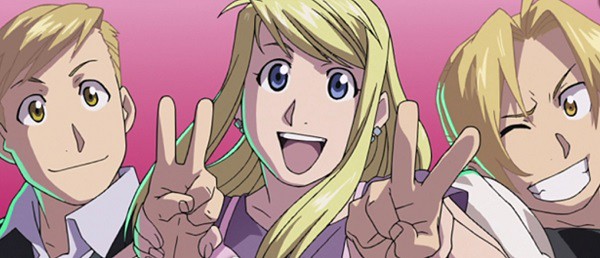
The Rizembool Gang: the boys are as likeable as ever; Winry's role has grown - along with her bust. The single major reason why I think FMB is inferior is that everything in it is far more black and white*. Most else flows from that. The good guys are all decent and trustworthy, if rascally at times. They want to lead worthwhile lives, atone for the Ishvalen War, make Amestris a better place and stop the evil inflicted upon them. The bad guys are irredeemable, even if they are pitiable on demise, and hate the good guys. They just want to rule the universe and kill off everyone else. For sure, there are changes of heart (Scar, Kimblee, Greed - more on those latter two shortly - and some of the Chimera) but these metamorphoses tend to be sudden, complete and enduring. The plot is driven largely by the big bad, Our Father, which limits the level of agency available to the other characters. Indeed the plot can be summed up by naming two tasks: 1) the retrieval of Al's body; and 2) thwarting the evil plans of the big bad. Kimblee is one of the few ambiguously grey characters in the series, probably because he is deranged. Whatever the reason I actually enjoyed his appearances, whereas he was annoying in the original. To be honest, it took me several scenes to get over my prejudice from FMA. Ling / Greed has no equivalent in FMA and it's clear why he is so ambiguous - his body houses two people. Much of the pleasure comes from observing how the two not entirely disparate characters come to accomodate each other. It also means that Greed is the only homunculus that learns anything worthwhile about humans. By contrast, with no overarching big bad setting their stamp on proceedings, FMA has the space and opportunity to present a plot that is fashioned out of the competing goals of many players: Ed and Al trying to get their bodies back; Lust and the other homunculi trying to find their humanity; Bradley and Mustang competing for the rule of Amestris; Dante and Hohenheim desperate to stop the decay of their supposedly immortal bodies; Shou Tucker to continue researching; Maes Hughes trying to find an ideal to live by after the horrors of the Ishvalen War. Because everyone has their reasons everybody is compromised in ways that just don't happen in FMB. 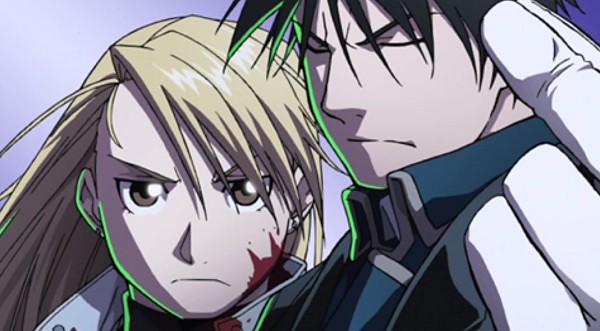
Hawkeye and Mustang: where are his "military in miniskirt" type comments? An obvious example in FMA is how, despite the Elric brothers learning how wrong it is to try human transmutation, at the end they try it again. Or Hohenheim: in FMB he is essentially a kindly soul; in FMA he is both sinister and sympathy inducing. That moral ambiguity; the understandably human weaknesses motivating the characters, is what makes FMA something more than merely a shounen action series. It follows therefore that most of the characters are less interesting in FMB, simply because their motivations are more straightforward. While the brothers are as endearing as ever, several of the better characters from the first series ended up diminished in the second: Hawkeye, Mustang (who has nothing to match his memorable one-liners from FMA), Maes Hughes, Lust and Izumi Curtis. Apart from Winry accompanying the Elrics more than she did in the first series, all the previous female characters have declined in agency and in the significance of their roles. Happily this is remediated by the wonderful Olivier Mira Armstrong, my favourite character of FMB. Her in-your-face aggressive honesty is never less than highly entertaining. FMA's Dante is a better villain than Our Father because she is human, desperate and earns some sympathy from us. Our Father is just plain bad and ridiculous. 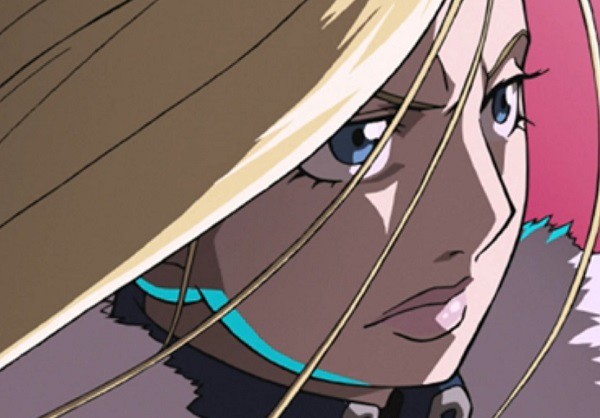
Olivier Mira Armstrong: there's no choice but to like her. Another thing FMB gets wrong is there are altogether too many philosopher's stones littering the narrative landscape. It reduces their value, their ability to induce awe in the viewer, and the fridge horror involved in their creation. This leads FMB to be entrapped in the Gurren Lagann Syndrome - too many climaxes leading to their devaluation as entertainment, then trying to compensate by making the next climax even bigger, mostly to little effect. (I'd call it the Gainax Syndrome but that describes something else, although I do think the two are related. One of the reasons Gainax series fall over at the end is that the Gurren Lagann Syndrome has left them with nowhere to go.) And, because FMB goes at such a breakneck pace, it never has the emotional impact of the most memorable moments in the first season, particularly the death scenes spoiler[(Ed and Al's mother, Nina, Maes Hughes, Lust and Sloth being the stand-outs)]. The origin of the homunculi is much more disturbing in FMA, even if each creation is something of a plot hole. (How is that, in every case, the alchemist abandons the loved one they are trying to recreate? How is that Dante knows of their creation each time? How does she/he get to the location in time to regenerate them? How does she/he whisk them away with nobody noticing or wondering what happened to the remains? None of these things are ever explained. Perhaps I'm missing something.) Because of their connection to the alchemists the situation is, yet again, more ambiguous, more disturbing. It adds gravitas to the homunculi's search for the meaning of their existence, something that is completely absent in the newer series. 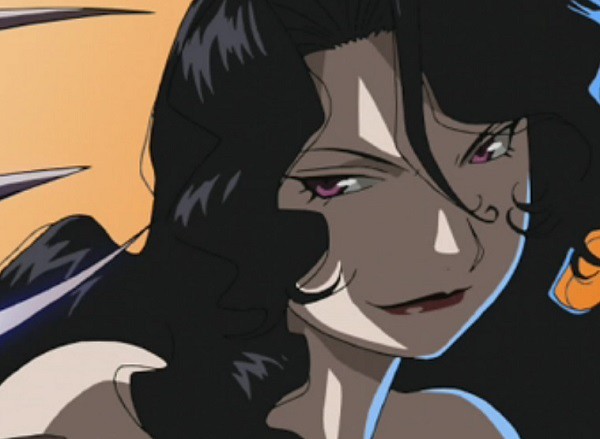
Lust: diminished in FMB. So far I've been mostly dumping on FMB. It does some things better. Despite being thirteen episodes longer, all episodes lead to the conclusion, unlike the numerous episodes in the first season that could easily be excised. It is also more economical in its storytelling so that it doesn't dwell too long in its more mundane moments - I suppose that's the flipside of the breakneck speed coin. Mind you, while FMA became a chore to watch in its middle episodes it picks up in the last third, getting better and better. FMB, by way of contrast, doesn't flag as such but, being a simpler shounen anime, it is, when all is said and done, about the fighting. I don't watch anime for fights, and that's pretty much all the last fifteen or twenty episodes are - one fight after another. Combine that with the aforementioned Gurren Lagann Syndrome and those episodes were a chore for me to get through, every bit as much as the filler episodes of FMA. FMB does improve on one of the already notable things about FMA. The vast array of characters is even bigger and all the new characters are as distinctive as those we already know. Indeed, FMB frequently trades on us knowing the characters - cue Mustang and Hawkeye. If FMA didn't exist, FMB would have had to spend more of its available time familiarising us with several of the characters. Some of the new characters are pearls: Olivier Armstrong, May Chang, Fu, Lan-Fan and Ling to name them. Other characters are enhanced: Fuhrer Bradley, Kimblee as already mentioned, Gluttony and Winry, who gets to do more. I suppose it must be said that Selim Bradley gets a much larger role, even if in the original his role is tragically ironic. While the transformation of Scar is satisfying I actually think his role in FMA was more interesting. It's a trade-off in his case. 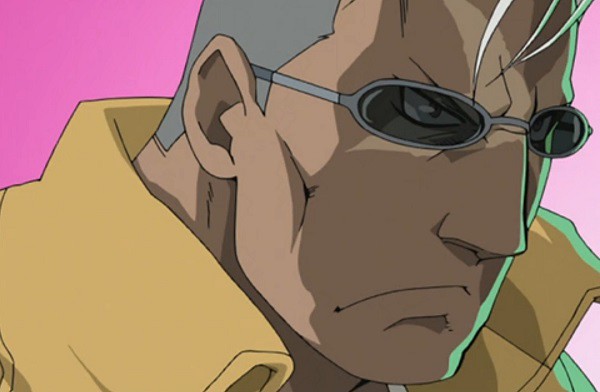
Scar: more interesting character; less interesting role. He smiles at the end. I just knew he would. Finally, there is the Gate and what lies beyond it. There is no doubt that in one crucial aspect FMB kills FMA - it resolves the story in a highly satisfactory way: spoiler[Ed pays the cost of giving up alchemy to restore Al to his body]. It's a great solution to the underlying moral question the boys must confront. They give up the thing that was at the centre of their transgression and their hubris - spoiler[alchemy]. It allows FMB to follow up with a highly satisfying coda, detailing what happened afterwards. Contrastingly, FMA ends disastrously for the Elrics - they haven't learned from their error - and it requires a disappointing movie sequel to conclude the story (in a fashion). But... Nothing in FMB, I repeat nothing, can match how mind-bogglingly awesome is the world that Edward finds on the other side of the Gate in FMA. Recently in another thread I wrote about WOW anime - for me the moment Edward looks up and sees Zeppelins is the single most WOW moment I've yet seen in anime. The relationship between his world and ours and how alchemy in his world is powered by spoiler[death in our world] is a stroke of genius that puts into shade any amount of climaxes or confrontations in FMB. Meeting spoiler[god/the universe] in FMB was a terrible letdown by comparison. 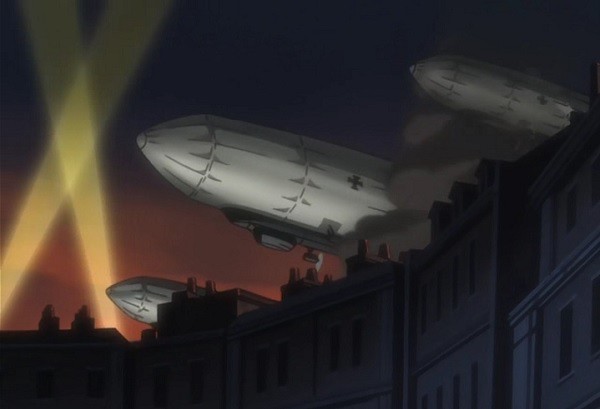
This moment on its own would have me rating the older series superior. Fullmetal Alchemist, in either version, will appeal because of its vast array of great characters and the central moral dilemma that the Elric brothers must face. The original version, thanks to its greater ambiguity, makes those characters more human and therefore their travails more emotionally engaging. While FMB has a more satisfactory ending, FMA more than makes up for this with its inspired world beyond the Gate. Ratings: Fullmetal Alchemist: very good Fullmetal Alchemist: Brotherhood: good I rate the other Bayesian top 4 anime as follows: Rurouni Kenshin: Trust and Betrayal - excellent Steins;Gate - very good Clannad After Story - decent (with episodes 16-19 as masterpiece) *Can black and white be relative? Probably not. I need an editor. Last edited by Errinundra on Thu Nov 09, 2017 1:15 am; edited 2 times in total |
||||
|
||||
|
Errinundra
Moderator
Posts: 6584 Location: Melbourne, Oz |
|
|||
|
Giovanni's Island
Saw this today as the last of three anime films being presented by the Melbourne International Film Festival. The Story: An old Japanese man revisits Shikotan, an Island in the Kurils, where he lived as a child until its occupation and annexation by the Soviet Union. The journey revives memories of those events, especially his family’s struggles to adapt to the new circumstances, the bravery of his father and his schoolteacher, the scheming of his uncle, the Russian girl he meets and falls for, his evacuation from the island to Sakhalin, and a desperate journey with his ill brother to be reunited with their father. The Venue: It was back to ACMI 2 in Federation Square. Disappointingly, the audience was small, although it had screened already a week or so earlier. The Film: Giovanni's Island uses two framing devices to orient the movie in time, space and also thematically. The first is the seizure of the South Kuril Islands (including Shikotan) by the Soviet Union at the end of World War 2. While Russia had historical claims to other parts of the archipelago, they had never previously administered the South Kurils. The Japanese population was evicted in 1947 and repatriated to mainland Japan. Russian administration of the islands continues to be disputed by Japan. In the film two former residents - Junpei, who was a student at the time, and his teacher, Sawako - return for the first time at the invitation of the Russians to take part in a school reunion as a goodwill gesture. The film is seen through Junpei's eyes and he provides the occasional narration. The second framing device is the classic Kenji Miyazawa children's novel, Night on the Galactic Railroad. I would imagine that most Japanese viewers would be familiar with it. In that story Giovanni must work hard to care for his sick mother in the absence of his father who is missing so has no time to socialise with his peers at school. His only friend is Campanella. One day Giovanni has a dream of journeying with a soaking wet Campanella by interstellar steamtrain to the Southern Cross constellation. When he awakes he discovers that Campanella has drowned. The train thus becomes a metaphor for both permanent separation and for the journey into the afterlife. In the film we learn that Junpei (Giovanni) and his brother Kanta (Campanella) were named after the novel's main characters. Ominous or what? The film can be divided into two halves: life on Shikotan before and after the arrival of the Soviets; and what happens after the eviction - set mainly on Sakhalin, where Miyazawa wrote much of Night on the Galactic Railroad. Despite the obvious conclusion one may make, the framing devices apply throughout the movie. For me, it was the first half that resonated the most. I was captivated by the life of the islanders, their reaction to the end of the war and the arrival of the Soviet troops. Despite their fearsome demeanour and reputation ("they kill bears with their hands") the Soviets are portrayed, if not entirely sympathetically, then without condemnation. For sure, Junpei's family is evicted from their house and into their stable so the commandant can take their place but he (the commandant) treats them kindly nonetheless. Junpei's father is arrested and sent to a prison camp but there is no hint of maltreatment in the film (though there probably would have been in real life.) 
Tanya, Kanta and Junpei. The images are from the MIFF website - the film was in 16:9 format. We see all this through the innocent, ignorant eyes of the young Junpei. Which is weird, because the framing device is the older Junpei reminiscing. You would think some editorial commentary from the older man would intrude. In any case, the developing relationship between the Japanese and the Russians is, for the most part, entertaining (tempered by some disturbing developments), especially the way the school kids from the two groups come to an accomodation with each other. They start off trying to sing nationalistic songs over each other and end up singing the others' songs. From warily eyeing each other in the school yard, they break the ice by playing tag together. When Junpei accidentally knocks over the commandant's daughter, the pretty Tanya, she defuses a likely brawl by ostentatiously blowing a kiss into his ear. Their subsequent friendship becomes a metaphor for what might have been: they are forcibly separated by the 1947 expulsion of the Japanese from the islands with nothing more than what they can wear or carry personally. From that point the film takes a darker, more emotionally fraught turn as Junpei, Kanta, their teacher and their uncle travel by ship to Sakhalin where they face an uncertain future. When they learn that the prison camp holding Junpei's father can be reached by train, the parallels with Miyazawa's tale become stronger and the outcome, for all its seeming inevitability, is still emotional, though not nearly as much as I expected. Whenever a sad story is required to carry a philisophical argument - yes, the South Kurils have been lost, but it's time to be strong and work hard for a happy future - I find that I'm detached from the emotion. That's not to say that the message isn't a worthy one, it's just that the message and the story are working against each other to an extent. 
I don't know about you but I see an allusion to Grave of the Fireflies. The artwork and animation are a curious mixture of styles. The simple character designs can be rough, while furniture and other nearby objects have detailed textures with 3D shapes, even if they may be misshapen at times. The landscapes can be exquisitely detailed and natural looking while the clouds and other objects might be highly abstract. The blending of naturalism, artificiality and abstract expressionism matches the blending of the hard reality of the characters' lives with the fantasy of Night on the Galactic Railroad. It's not always convincing. All the same, I always appreciate anime that breaks away from the straightjacket norms so typical of the industry. Overall, it's visually appealing, though nowhere near being in the same league as The Tale of the Princess Kaguya. The verdict: Very good. The film tries to parallel the loss of the South Kuril Islands, the classic tale of Night on the Galactic Railroad with the story of Junpei's attempt to be reunited with his father after their eviction from the islands. Junpei's story is affecting and memorable, however the parallels tend to come across as extraneous. |
||||
|
||||
|
Animegomaniac
Posts: 4158 |
|
|||
Abridged not to get into the next "What's so good about FMA that FMA Brotherhood doesn't do better?" contest but {there it goes...} my reaction to its direction? "Zeppelins, yes, Amestris was an analogy of 20s, 30s Germany right down to its fascism, but there's no need.. ah f***, Nazis..." Single most awesome let down in anime; Nazis, when you need Evil, get the guys with the capital E... The biggest plot hole regarding FMA's homunculi isn't how Dante knew who they were, where they were or how she controlled them, big though they are, it's why there were exactly seven, at that point in time, at that point in the story which averaged to three over hundreds of years and four in ten?..., how some were obviously not human despite supposedly being humans and how the real ones took on the look of their sin while the fake ones resulted in "Hey, you're Sloth... right?" introductions to the audience. No, no, the biggest one was Trisha Elric. Yeah, her face wasn't the one obscured in the photo. God, I hate this series, such earlier intelligence wasted. No, wait, the biggest one was Wrath aging {yeah, an infant wouldn't be much of a threat... or have any wrath?} Or Pride being a reincarnated/artificial human {unstated but it changes when it suits their story} in charge of a country with little point having that position ... or how he got it in the first place... beyond the requisite "Wait, he's one of them?" moment. See how hard it is once someone starts saying comments about the Series That Time Should Forget? The Ultimate Truth is that Brotherhood would be so much better if the first one didn't exist in the first place. Anyway, Clannad After Story, you are correct, those episodes are some of the best in Anime, possibly everything, marred by Clannad: The Lost Episodes and Clannad: The Ending That Changes Everything That was Just Earned. |
||||
|
||||
|
Generic #757858
Posts: 1354 |
|
|||
|
Finished watching Girls und Panzer.
Should've been a 26 ep series to better flesh out the world and characters, now it just felt too rushed and shallow. Luckily the great tank battles and the inherent silliness of the whole premise were still enough to carry the show. Final rating: Good |
||||
|
||||
|
Errinundra
Moderator
Posts: 6584 Location: Melbourne, Oz |
|
|||
Erm, the Nazis didn't attack London with zeppelins. You're out by several decades. Those zeppelins belong to the Kaiser. End of that quibble. (Although it has application in the sequel movie.) Later edit: In any case, it isn't the zeppelins that make the moment awesome. It could have been American choppers in Vietnam; or war in the Middle East; or the Japanese attack on Pearl Harbour. What makes it awesome is that the other side of the Gate is our world and that Almestris alchemy is powered by death and strife in our world. This underlines the greater moral emphasis present in the original series, also underlined by the repeating at the beginning of every episode of the equivalent exchange mantra. The newer series concentrates more on the conflicts (read fighting) than Ed's sin and subsequent dilemma. |
||||
|
||||
|
Animegomaniac
Posts: 4158 |
|
|||
Here we go again... My favorite part of Brotherhood was when the main characters, our heroes, learned that Equivalent Exchange was a load of garbage. The first series lived by it and, eventually, died by it. I heard that it was "author approved" but seeing how its logic was used, I think her personal response was more like "Yes, fine, go do that. I'm busy" and proceeds to do the above scene. It's a story about learning and growth, discarding outdated knowledge for new Truths and not repetition. And as part of that repetition, they make spoiler[Maes Hues] into a Nazi. No, just make that series and official film ending go away. They were actually so bad I almost didn't read the manga and this was before Brotherhood was even suggested. The first anime was an emotional series with certainly some great highlights {from the manga... which couldn't be fully adapted for Brotherhood because the first one exists} but it's morally and intellectually bankrupt. Morally? Shall I open another can of worms? No cherry picking, the entire work and movie has to be considered. |
||||
|
||||
|
Akane the Catgirl
Posts: 1091 Location: LA, Baby! |
|
|||
|
^ So what you're saying is...that the first FMA anime is bad because...
A) This wasn't what happened in the ORIGINAL source material! B) I don't agree with these messages! BLASPHEMY! I've already gone over point A. In regards to point B, that's the type of "criticism" that Christian groups love to use whenever they disagree with a work that isn't necessarily morally repulsive but doesn't line up with their views. If you didn't like the first anime, fine. But calling it bad because of points A and B makes no sense. I'm watching the first anime, and so far, it's fine on it's own. |
||||
|
||||
|
Lain'sHairline
Posts: 158 Location: Dallas, TX |
|
|||
|
Bleach: Memories of Nobody
Because I'm eating dinner and it's fitting. And ichigo does some ichigo like things which always prove to be choice. Oh, and the main love interest ain't half bad. |
||||
|
||||
|
dtm42
Posts: 14084 Location: currently stalking my waifu |
|
|||
|
Mars of Destruction.
I just felt like watching something bad. Not only was it funny as heck - in a "so bad it's good" kind of way - but it also makes me appreciate all the good anime out there even more. The sad part though is that it isn't even the worst anime I've ever seen. I'll be watching Skelter Heaven tomorrow; hopefully that will be just as "entertaining". |
||||
|
||||
|
Errinundra
Moderator
Posts: 6584 Location: Melbourne, Oz |
|
|||
It's more incompetent than downright bad. |
||||
|
||||
|
Chiibi
Posts: 4829 |
|
|||
The most common answer I get to that question is Apocalypse Zero. But I hear Violence Jack is also of unquestionable atrocity. I wonder which is worse. I'm not brave enough to try either. 
Garzey's Wing is terrible but in a fantastic way. That's probably the worst I've seen in terms of "construction/effort" because HAHA IT HAS NONE O THAT. |
||||
|
||||
Blood-
 Bargain Hunter Bargain HunterPosts: 24161 |
|
|||
|
I love Apocalypse Zero. It is effin' demented but there was something compelling about it for me even though right now I can't really remember what it is. Anyway, watching the anime makes me want to get the manga.
|
||||
|
||||
|
dtm42
Posts: 14084 Location: currently stalking my waifu |
|
|||
Well, I think Mars of Destruction is bad because it is incompetent. But yeah, it didn't come across as unadulterated awfulness. Which is kinda surprising given that it is the worst-rated anime on both ANN and AniDB, and the second-worst rated on MAL (behind Skelter Heaven). |
||||
|
||||
|
danilo07
Posts: 1580 |
|
|||
I never understood why people hated Apocalypse Zero, it is pretty decent OVA with more than enough moments of pure badassery and you can easily find meaner and crueler anime out there. |
||||
|
||||
|
Aylinn
Posts: 1684 |
|
|||
|
I am watching Gekkan Shoujo Nozaki-kun. So far it has been doing a good job at poking fun at generic shoujo. I also need to catch up with Barakamon, which looked interesting, especially since it is not about a high school student. The first four episodes just left me wondering how is he earning his living.
|
||||
|
||||
|
All times are GMT - 5 Hours |
||
|
|
Powered by phpBB © 2001, 2005 phpBB Group
